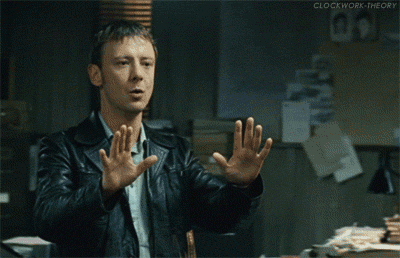
Today’s Underdog: The Earth
If all of Earth’s history was reduced to one year, humans wouldn’t have appeared until noon on December 31st, civilization until 5 minutes short of the end of the year, and Columbus wouldn’t have landed in America until 20 seconds short of midnight (source). Since the start of the industrial revolution, it has only been six seconds. Since the start of mass pollution and environmental degradation, it has been a mere six seconds.
Today’s underdog is the Earth because in just six seconds we’ve managed to all but completely destroy it. In Illinois alone, we have lost over 99.99% of our original prairie, and over 80% of our original wetlands. 15% of all extinct species went extinct in just four of those six seconds since we first industrialized. Today’s underdog is the Earth, the universe’s most valuable resource, and the universe’s most threatened one.
It scares me immensely when I consider how much damage has been done to the Earth in just six seconds. It scares me more when I consider how little concern for the environment there still is. The effects of our degradation aren’t just felt by other species. Think about all the costs spent on treating flooding, improving water quality, and allergy medication. All three of these costs, and many more, would be greatly reduced by managed environmental action. Pollution affects us economically and affects our health. And yet, too often, we stand and wait.
What scares me is the misunderstanding about the environmental movement. The image is often one of vegetarian hippies, tree huggers, and anti-capitalists. But at the core of the apple that is the environmental movement, is the worm of simple, manageable action. Environmental action need not be huge, costly, or laborious. It can be as simple as turning the water off when you brush your teeth (saving eight gallons of water a day) or planting a rain garden to mitigate pollution. These individual pennies can add up to real change if we only start collecting them.
Today’s underdog is the Earth because it is the rarest resource in the universe. And in just six seconds, we have managed to nearly destroy it. And that scares me. But we have made progress. First, in the 1970s, we passed the Clean Water Act, protecting the United States’s wetlands; then, more recently, we began to invest in clean and renewable energy resources. But it will take much much more. It will take individuals stepping up for a cause larger than themselves. It will take courage and hard work. It will take a fight, for there still stand obstacles in the way of progress. Like any underdog, it won’t be easy. But what have we learned through our exploration of underdogs in the last few months? There are strategies to be employed to achieve success: don’t be afraid to be different, take a risk, work hard, and never give up. If there’s anything I can leave my readers with, it’s that anything is possible. Even saving the Earth. One second at a time.












